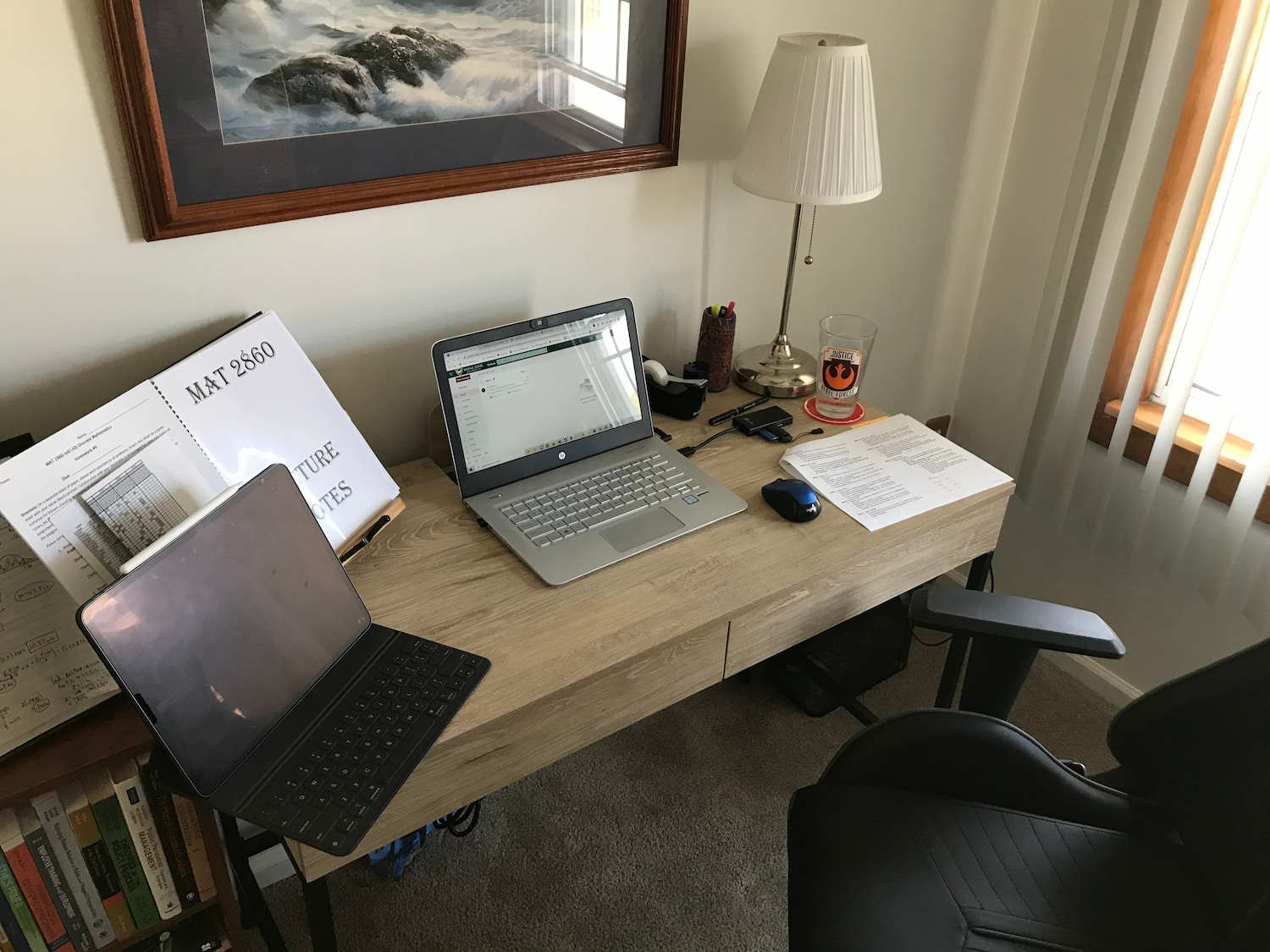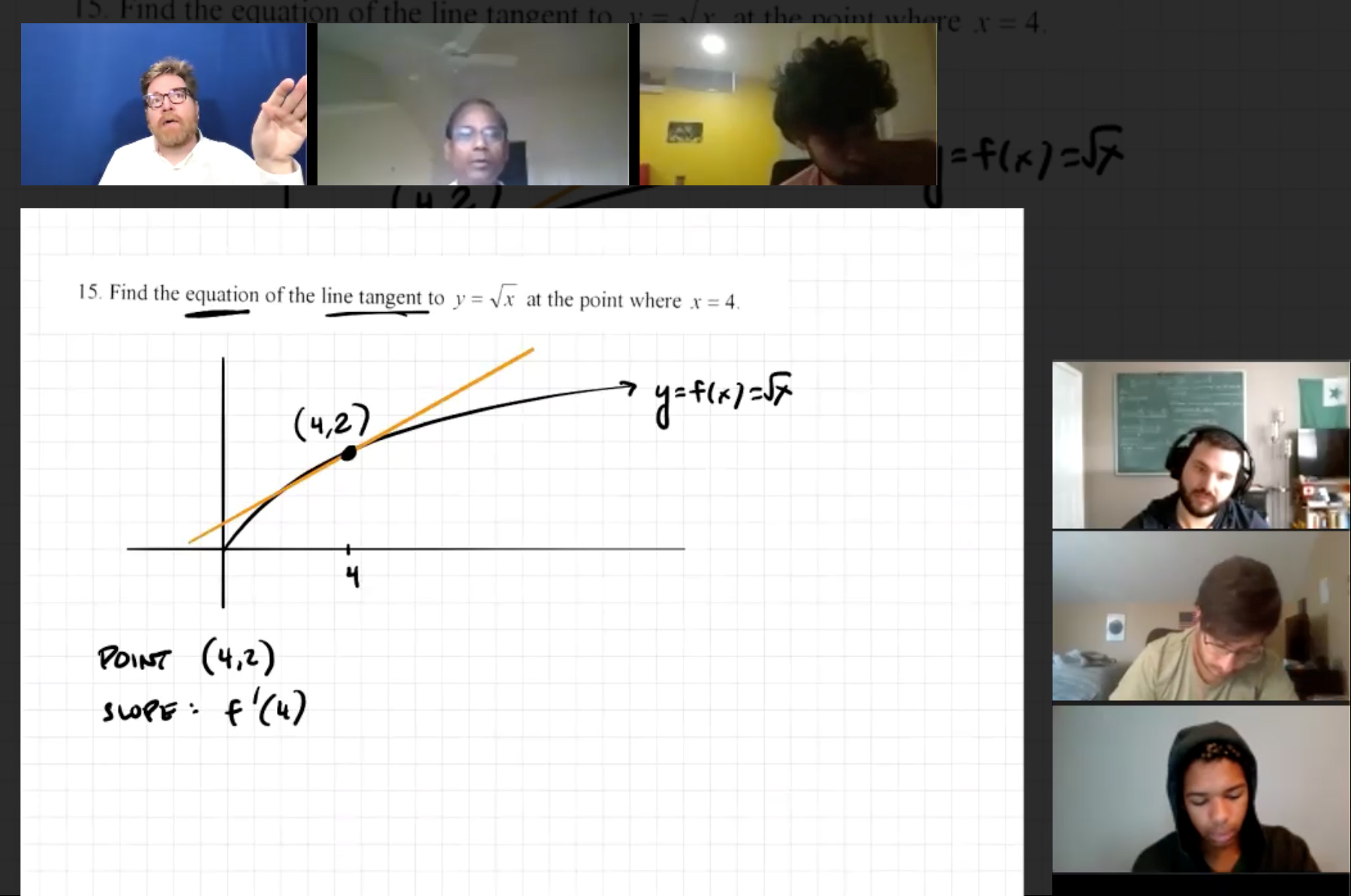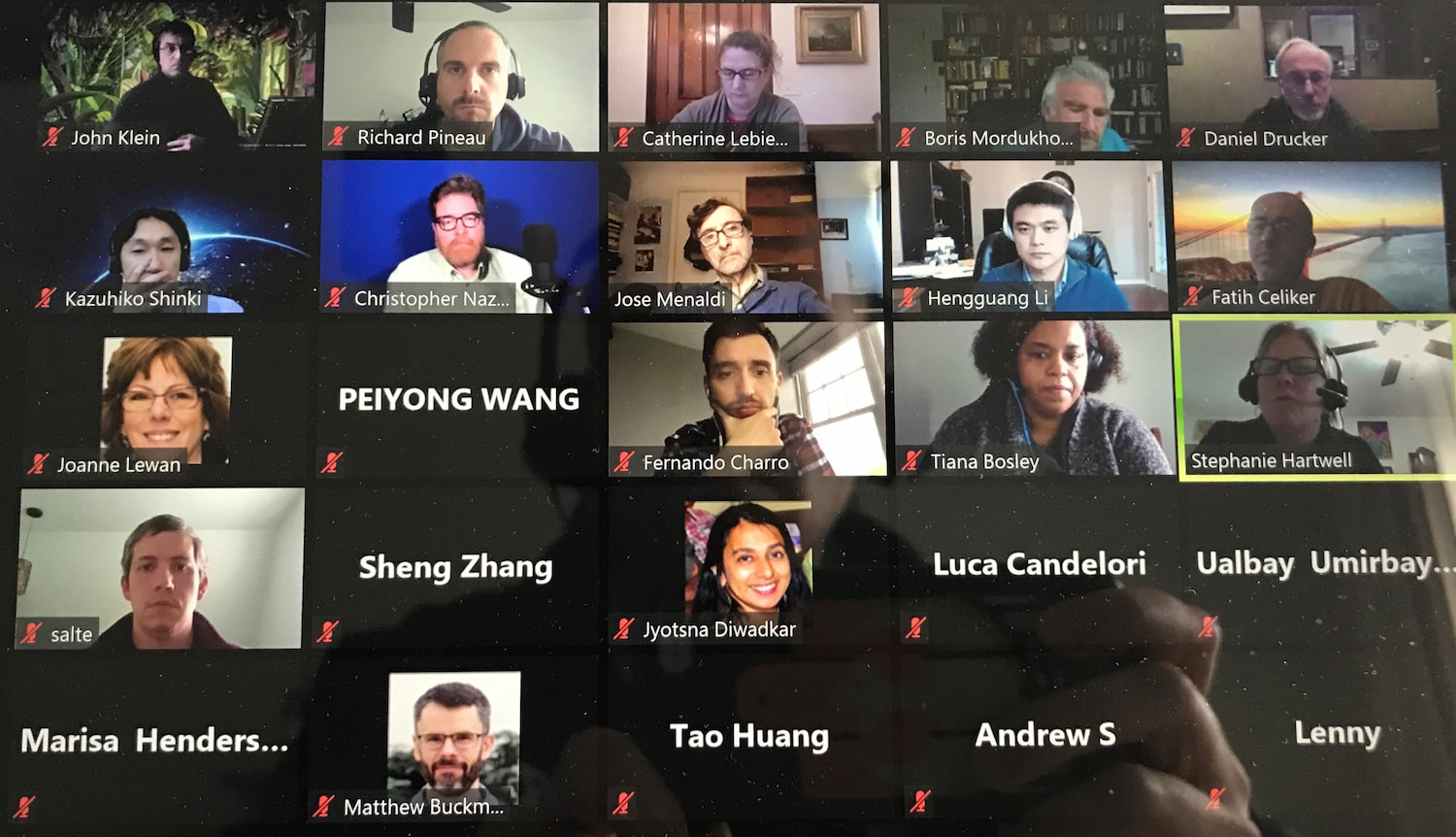Embracing the online/remote learning environment: The Department of Mathematics story
When the decision came in mid-March that all courses would be moved to online/remote instruction, it sent everyone into a frenzy. So many decisions had to be made in a short period of time in order to get courses ready following an extended spring break. The math department at Wayne State jumped to action to meet the challenge and at the same time, to provide quality instruction for our students.
Teaching remotely
Over the summer, our department's Undergraduate Committee sprang into action and met weekly to discuss everything related to online instruction. Committee member and associate professor Catherine Lebiedzik drafted a list of recommendations that was disseminated to all faculty. Among the suggestions were ways to organize course content, engaging students, and how to handle exams.
Associate Department Chair Daniel Drucker, who also chairs the Undergraduate Committee, indicated that "this is an evolving environment and we may find certain things work and other things do not. So we have to be ready to adapt and hopefully, the recommendations we have provided will help faculty in developing their courses."
Among a plethora of decisions that faculty had to make, the most important was how to actually conduct their classes, that is, asynchronously or synchronously. Both formats have advantages and disadvantages. Senior Lecturer Richard Pineau made the decision to have his three sections of Elementary Statistics (STA 1020) taught in the asynchronous format. He prepared YouTube lecture videos for his students to watch each week. "I wanted the students to have as much flexibility as possible because I cannot predict what challenges they may have."
He does have a participation requirement that students need to attend one of four 30-minute office hour sessions or participate in a discussion board each week. "I still wanted to connect with my students and review material with them each week, albeit for a short period. My students seem to appreciate that connection and enjoy coming to the sessions." In addition to working problems, Pineau shows pictures of his fishing adventures, all to the delight of his students.

Technology upgrades
One challenge that the faculty faced was upgrading their technology to meet the needs of teaching remotely. "Teaching math is very different to teach online and so I had to go out and purchase an iPad to make writing equations and graphs much easier," said lecturer Carolyn Hochstadt. "I also bought an iPad to make the creation of my videos go a lot smoother," said Pineau.
"I have also learned a few things from my students along the way", he added. Chris Nazelli, a senior lecturer with the Emerging Scholars Program (ESP), also made some software purchases to conduct his classes remotely and noted the detail it takes to produce lecture videos. "It takes a lot of time to design lecture videos. I try to create a smaller number of richer examples, and I find that I must be deliberate about building in opportunities for student engagement and active learning," he added.

Student services
Life also has to go on for things like student advising and tutoring. ESP support coordinator and academic advisor Marisa Henderson works hard to meet with the students she is responsible for supporting. "As a support coordinator, I had to come up with new ways to address student issues and come up with new ideas for effective support," said Henderson. She explained how she keeps in contact with instructors and students by adding, "I use the new ESP/RSP Community Canvas site, where I can provide supplemental resources for our math classes, other academic courses, and non-academic assistance. I am also a part of all the ESP/RSP Canvas courses, so I can respond and react to student issues as they arise throughout the day". Henderson is also in daily contact with her instructors and works hard to ensure students are supported, even remotely.
With the move online, this meant that the Mathematics Resource Center (MRC) could not offer its tutoring services on campus. "The MRC tutors currently consist of a mixture of GTAs and undergraduate math majors, and they are an awesome crew", said Tiana Bosley, the MRC director. "As soon as a request is submitted via our tutoring platform, one of them is quick to respond to the student's inquiry, sometimes even after the MRC is closed. They are truly the stars that have made moving to the online platform an easier process," she added. So far, the MRC staff has remained pretty busy responding to questions and they use Zoom to handle sessions with students.
Faculty were not the only ones who needed to adjust to working remotely. The department's office staff also had to adjust. Members of the department can no longer just come into the main office to ask questions or drop off paperwork, instead, it must be handled through email, Zoom calls, or formal phone calls. "We have a great office staff who work very hard to support the needs of our faculty and graduate students", said department chair Hengguang Li. "We are still able to provide essential services and support the mission of the university" he added.
Doris King, the department's administrative assistant, makes a weekly trip to the department to check mail and handle anything that needs processing from the office. When asked how she likes working remotely, King had this to say: "I actually like working remotely, it is going well. I'm getting a lot done, fewer distractions. The only downside is not seeing my colleagues." She is not alone in missing the interactions with her colleagues. Everyone is feeling the consequences of not having the social interactions of being around colleagues and students on a regular basis.
Life in the department
On Wednesday, October 14, the department held its first meeting of the semester. College of Liberal Arts and Sciences Dean Stephanie Hartwell joined the meeting to share news about the college. Several committee chairs provided updates on their work and answered questions. Among the highlights shared were the high school visit to the department by Waterford Mott on March 6, the hiring of a new statistics faculty member and faculty promotions and honors from the last year.

A weekly staple of the department is the Colloquium; an academic seminar. A speaker is brought in to talk on a topic that is open to everyone but may focus on a specific theme, idea, or branch of mathematics. Additionally, each branch of mathematics in which department faculty members do research offers its own seminars, offered at different intervals. There again, a speaker presents material related to that specific discipline. With faculty being far busier teaching remotely, such gatherings have been harder to organize.
Speaking more broadly, however, professor Dan Isaksen adds, "The mathematics research community has undergone a rapid transformation. There are now many online seminars that attract global audiences. The website mathseminars.org tries to unify these schedules in one place for easy access." Since 2017, Isaksen has organized the electronic Computational Homotopy Theory (eCHT) online research seminar (s.wayne.edu/echt) which offers mini-courses, reading seminars, and some professional development opportunities for participants.
The Wayne State University Department of Mathematics remains committed to providing high-quality instruction and programs for all students, even in a remote learning environment.